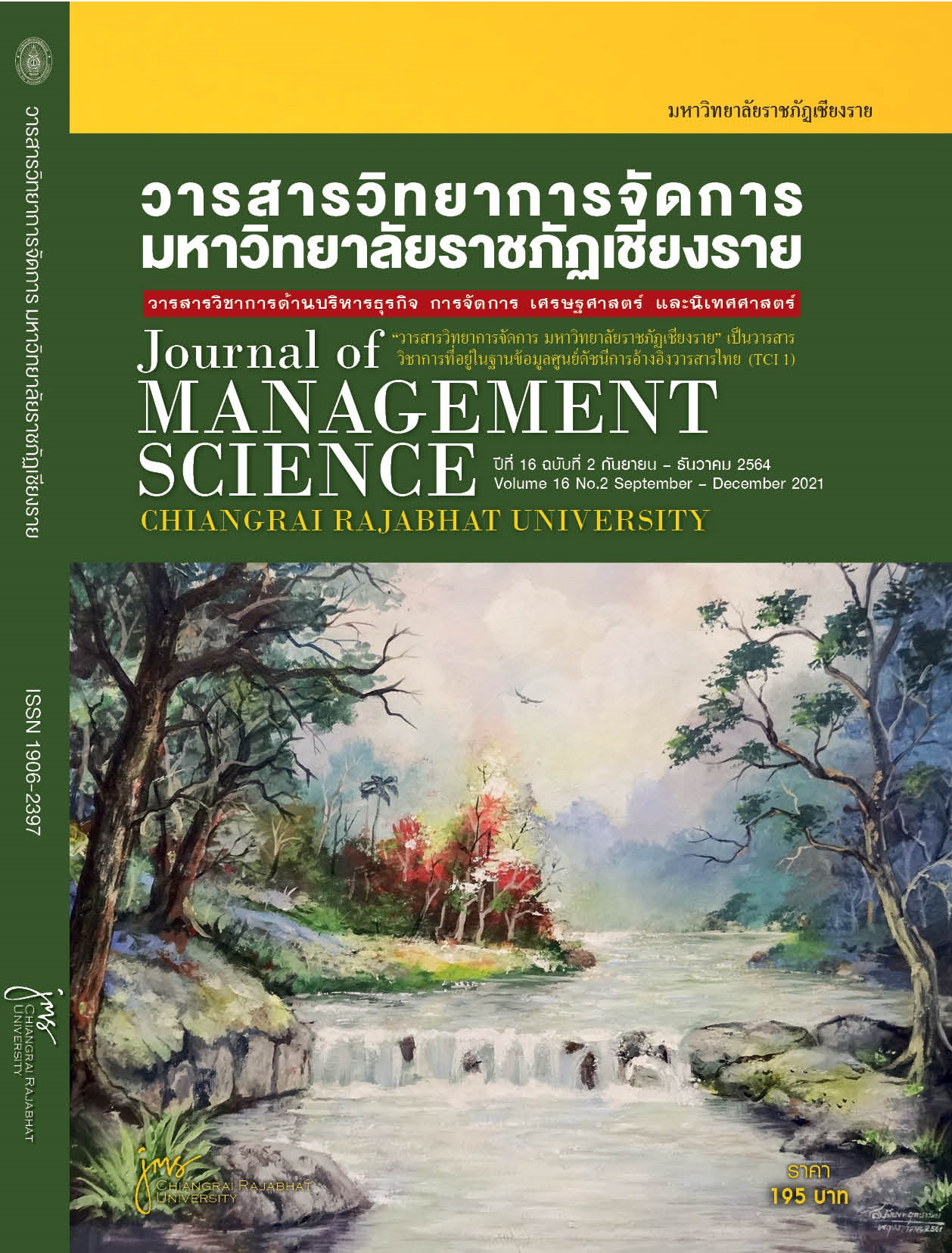The Influence of Work Motivation Factors on Teachers’ Job Satisfaction and Performance in Private High Schools, Myanmar
Main Article Content
Abstract
In the private education sector, in Myanmar, the problem of job satisfaction is glaring since the low productivity and labor high turnover are practically a yearly phenomenon. The essential question may be why does there happen this actuality. The reason could be because private school teachers are not fulfilled concerning their works. This study investigated to examine the relationship between work motivation factors, job performance, and job satisfaction of school teachers from the private education sector in Chin State, Myanmar. In this study, the specific objective is fixed to investigate how salary, supervision, recognition, and training influence job performance and job satisfaction, the connection of job performance and job fulfillment among private high school teachers. In this investigation, a research design was a descriptive research design, 181 respondents as the sample size was requested and also used the Primary data collecting. Quantitative data was gathered and the questionnaires were modified from the previous studies. The validity of the questionnaires was guaranteed by doing the pilot test in this study. SPSS version 22 was utilized to analyze the collected data. Then, the frequency, percentages, mean, standard deviation, correlation and multiple regression analysis were used to present the data analyzing. By making analysis, this study concluded that the inspiration factors for instance salary, recognition, and training positively and significantly influence both the private school teachers' job performance and job satisfaction. Subsequently, private school teachers' work performance also influences significantly on their satisfaction. This investigation left the suggestions that comparable research can be directed within another region, state or division to support and confirm the research or discover and create different findings, new research to observe whether another factor also influences or not on job performance and job satisfaction among private school teachers within Myanmar. The research findings will greatly help school managers understand the important factors in teachers' performance and satisfaction. Both theoretical and managerial implication are further proposed.
Article Details
Views and opinions expressed in the journal do not necessarily reflect those of the editors.
References
Arifin, H. M. (2014). The Influence of Competence, Motivation, and Organisational Culture to High School Teacher Job Satisfaction and Performance. International Education Studies, 8(1), 38-45.
Awang, Z., Ahmad, J. H., & Zin, N. M. (2010). Modeling Job Satisfaction and Work Commitment among Lecturers: A Case of UiTM Kelantan. Journal of Statistical Modeling and Analytics, 1(2), 45-59.
Ciscel, D. H. (1974). Determinants of Executive Compensation. Southern Economic Journal, 40(4), 613-617.
Cronbach, L. J. (1951). Coefficient Alpha and Internal Structure of Test. Psychometrika, 16(3), 297-334.
Elnaga, A. A., & Imran, A. (2014). The Impact of Employee Empowerment on Job Satisfaction. American Journal of Research Communication, 2(1), 13-26.
Elyse-Maureen, A. (2017). Employer-Employee Relationship and Job Satisfaction in Selected Public Service Organizations in OYO State. (MBA Dissertation),Faculty of Management Sciences,University of Babcock.
Farber, B. A. (1991). Crisis in Education: Stress and Burnout in the American Teacher. San Francisco, CA, US: Jossey-Bass.
Green, S. B. (1991). How Many Subjects Does It Take To Do A Regression Analysis. Multivariate Behavioral Research, 26(3), 499-510.
Herzberg, F. (1968). The Motivation to Work. New York: Wiley.
Hoppock, R. (1935). Job Satisfaction. New York: Harper and Brothers.
Kızıltepe, Z. (2008). Motivation and demotivation of university teachers. Teachers and teaching: Theory and practice, 14(5), 515-530.
Kuo, T.‐H., Ho, L.‐A., Lin, C., & Lai, K.‐K. (2010). Employee empowerment in a technology advanced work environment. Industrial Management & Data Systems, 110(1), 24-42.
Lindner, J. R. (1998). Understanding employee motivation. Journal of Extension, 36(3), 1-7.
Luthans, F. (1995). Organizational Behaviour (7th ed.). New York: McGraw-Hill.
Mausner, B., Snyderman, B., & Herzberg, F. (1959). The Motivation to Work (2nd ed.). New York: John Wiley.
Meyer, J. P., & Allen, N. J. (1991). A three-component conceptualization of organizational commitment. Human Resource Management Review, 1(1), 61-89.
Riley, M. A., Shockley, K., & Orden, G. V. (2012). Learning From the Body About the Mind. Topics in Cognitive Science, 4(1), 21-34.
Robbins, S. P. (2003). Organizational behaviour. New Jersey: Prentice Hall.
Rose, M. (2011). A guide to non-cash reward. London: Kogan Page.
Rowden, R. W., & Conine, C. T. (2005). The impact of workplace learning and job satisfaction in small US commercial banks. Journal of workplace Learning, 17(4), 215-30.
Simatwa, E. (2011). Job Satisfaction and Dissatisfaction among Teachers in Kenya. Kenya Journal of Education Planning Economics and Management, 3(3), 114-123.
Slocum, J. W., & Hellriegel, D. (2009). Principles of Organizational Behaviour. Boston: Cengage Learning.
Ting, Y. (1997). Determinants of job satisfaction of federal government employees. Public Personnel Management, 26(3), 313‒318.


